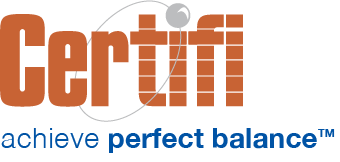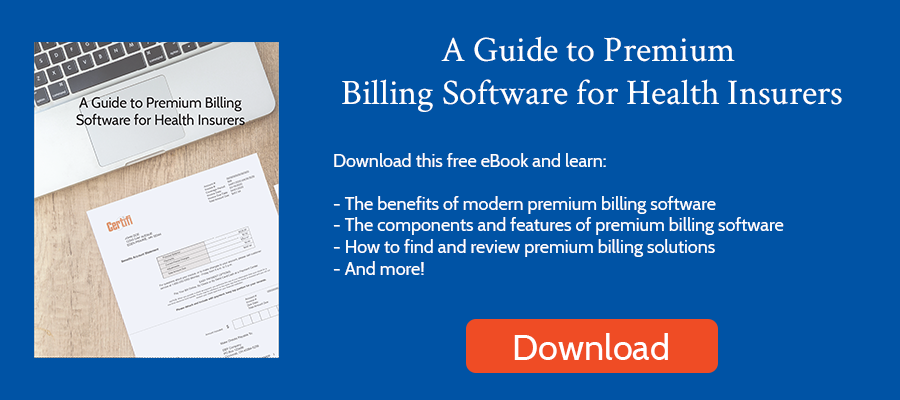A recent KFF Medicare Advantage enrollment breakdown found that 26 million Americans enrolled in a Medicare Advantage plan in 2021, up 2 million from a year ago. Medicare Advantage now counts 42% of Medicare beneficiaries, up 11% from 5 years ago. Not only do those eligible for Medicare continue to grow, but more beneficiaries are choosing Medicare Advantage plans over traditional Medicare plans.
As a result of that growth, many Medicare Advantage insurance carriers are finding their current enrollment numbers continuing to grow year-over-year. That growth strains their operational processes and technology solutions. To help, many are revisiting those processes and legacy systems so they can scale to meet their growth needs.
One of those processes that can significantly impact beneficiary satisfaction is the premium billing process. For many Medicare Advantage insurers, it’s one of the easiest technology solutions to decouple from their existing or legacy core administration solutions. As a result, it’s one of the first digital transformation upgrades made by insurers.
With that in mind, here are five questions insurers should ask when outsourcing Medicare Advantage premium billing:
Why should I consider outsourcing Medicare Advantage Premium Billing?
If you’re looking to replace a legacy or underperforming Medicare Advantage premium billing solution, the first question to ask is whether to build or buy a solution. For many insurers, getting internal resources to build a modern premium billing solution is a non-starter. But for those with the internal resources, build vs. buy can be a difficult decision.
We explained five considerations when determining whether to build or buy software previously. But at the end of the day, it comes down to:
- Do you have the resources that can build a modern billing solution?
- Are those resources better deployed on other projects?
- Are you willing to budget annual costs to maintain and upgrade that solution?
- Will those resources cost more than outsourcing to an off-the-shelf solution that meets your needs?
We have extensive experience implementing a Medicare Advantage premium billing solution, we’ve found that most insurers underestimate the costs of building and maintaining a premium billing solution. They also underestimate the value an off-the-shelf solution can provide in the form of faster feature upgrades and other functionality.
What’s your technology stack?
Once you’ve decided to outsource, it’s time to review potential solutions. A good question to ask is what technology stack potential vendors have built their platform on. You want a solution that’s as future-proof as possible. Though technology is always changing, selecting a solution that’s using a modern technology stack is more likely to scale and run
We recommend cloud solutions for several reasons:
- They can often be more cost-efficient. Instead of buying and maintaining on-premise infrastructure, cloud solutions rely on providers like Google, Microsoft, or Amazon to host the platform. Those technology solutions make it easy for their users to scale their usage up and down based on needs. Most billing activities – like generating monthly invoices – occur within a limited timeframe. The ability to scale processing power up and down means you’re only paying for what you use. It’s much more cost-efficient compared to building on-premise infrastructure to meet your needs during the most demanding time of the month.
- They often can be more secure. The companies selling cloud-based computing infrastructure invest heavily in ensuring the security of their solutions, so they tend to be more secure than on-premise solutions that are exposed to the internet.
- They can be more reliable. Cloud solutions can have backup servers in multiple locations. If there’s a catastrophe in Virginia that takes down some cloud servers, you can still access the application from California servers. These fallbacks mean you are less likely to experience downtime.
How do you improve the member experience?
Billing is a very personal experience and Medicare Advantage is becoming more competitive, not less competitive. As a result, you must deliver a great member experience to retain Medicare Advantage beneficiaries. So any premium billing solution should deliver a great member experience. Some things to think about:
- Easy-to-use payment options and portal — The easier it is to make a payment, the more likely your members will make on-time payments. So make sure the member payment portal is easy to use.
- Single Sign-On — Single sign-on makes it easier for your members to access their billing portal from your site using existing credentials. So ensure any solution offers single sign-on capabilities.
- Easy-to-use administrative interface — You want your software to save your member service team time. So review the administrative interface to ensure they can quickly access member billing information.
- Communication configurability — You want to look for a rules-based communication configuration in case you have different populations that need unique communications. One size likely doesn’t fit all when it comes to communicating with your Medicare Advantage population.
How do you match unknown payments?
A common problem in any premium billing scenario, but especially one with an older population, is that members will neglect to send billing information with their payment. As a result, you spend a lot of time trying to determine which member made the payment. It can waste hours — or days depending on your population — trying to match unknown payments to a member.
Ask your provider what kind of technology they leverage to make payment matching easier. It should save you time and improve the accuracy of incoming payments.
What’s the pricing structure if I’m outsourcing Medicare Advantage Premium Billing?
Finally, ask what the pricing structure looks like. Some solutions may bill an implementation fee and per member, per month fees. That’s likely the best pricing model because it ensures you’re only paying for the effort required to bill your members. Either way, understand the short-term and long-term costs of partnering with your solution provider.
Certifi’s health insurance premium billing and payment solutions help healthcare payers improve member satisfaction while reducing administrative costs.



